Forward in faith
As the Church of Scotland Guild launches its new three-year partnership with six innovative projects, Jackie Macadam profiles three of the six projects to benefit from the Guild’s financial and spiritual support in the first of a two-part series.
IN Romans 12, service is described as a gift of the spirit, and is generally taken to mean identifying tasks in God’s work that are as yet undone, and that our resources must be used to get the job done, no matter how menial it seems.
There can be few arguments that the Guild is one of the greatest of the Church of Scotland’s gifts –a spiritual army which uses every resource they have to make sure that God’s hand has all the help it needs.
Every three years, the Guild chooses six projects from all over the world, which, after a rigorous application process, will benefit from the Guild’s fundraising efforts over the following three years. The projects chosen come from a variety of backgrounds and will help a wide range of people desperately in need of help, both here at home and abroad.
The new batch of projects is no exception, spanning projects based in small villages in Tanzania to charities across Britain all in line with the three-year strategy, Look Forward in Faith.
Beat is the UK’s eating disorder charity, supporting those with eating disorders and their friends and family through the journey to recovery.
Eating disorders are serious mental illnesses. Affecting people of every age, gender, ethnicity, and background, they can have a devastating impact, harming all
areas of a person’s life. But with the right support, offered as early as possible, people can – and do – make a full recovery.
Beat’s work has been especially vital over the last year, as the pandemic and the ensuing isolation and uncertainty took a serious toll on people with eating disorders.
Emma Broadhurst, Beat’s National Officer for Scotland, says: “Over the last 18 months, the rise in referrals to the NHS services has been unprecedented. We’ve also seen a 275% increase in demand for our Helpline services in 2020 compared to 2019 from Scotland alone.”
Though the organisation now known as Beat was founded in 1989, it had its roots earlier than that, with a family counsellor, Nancy Pearce, who started a small support group from her Norwich-based farmhouse when her friend’s daughter developed an eating disorder.
“Nancy saw how devastating eating disorders can be for the whole family,” says Emma. “Guided by her Christian beliefs and understanding, she began to support others and help people share the load.
“Beat has continued to follow principles of compassion, support and understanding as it grew from a local Norfolk-based charity to an organisation that supports individuals, families, friends, health professionals, schools, and workplaces across the UK.”
A Guild member who knew about the damage eating disorders did to a family,
thought the project would be a good fit for the Guild projects and helped them apply.
“Beat was introduced to the Guild by one of its members whose family have been affected by an eating disorder,” says Emma. “Mary’s personal experience means she knows not only the harm eating disorders can do, but the importance of public awareness – something Guilds are ideally placed to help out with.”
With the Guild’s help, Beat hopes to take its message into communities throughout Scotland.
“To show our appreciation to the Guild, we’ve called ourselves ‘Beat and The Guild – Lets Beat Eating Disorders Together,” says Emma.
“The more people know how to recognise and respond to an eating disorder, the more likely it is that those who are struggling get the help they need. We know that with your support we can open doors in communities across Scotland and help people understand these serious mental illnesses. We are really looking forward to getting started.”
The Rev Graham McGeoch is co-ordinator of ‘Hear My Voice’ a project which trains women for Ministry and Service in Brazil.
“I grew up in the Church of Scotland, and I am a Church of Scotland minister.” Graham explained. “The Guild has been part of my whole church life whether it be running ‘coffee mornings’ or supporting projects.”
Based at Faculdade Unida de Vitoria (UNIDA), the project wants to transform theological education in Brazil by opening it up to more women and low-income students – people who are excluded simply because they can’t pay the tuition and because there aren’t enough scholarships.
“UNIDA believes in an education that can transform lives in a violent and violently unjust Brazilian society,” says Graham.
“The partnership project with the Guild, ‘Hear our voice!’, has three core elements:
• Providing access to accredited theological education for young women through special scholarships
• Equipping young women for leadership in churches, faith-based organisations and wider civil society through practical education
• Mentoring young women through accompaniment and work placements. “These characteristics place UNIDA at the forefront of pioneering education and transforming the lives of young Brazilians, as well as developing future leadership for faith communities and the wider society.
“UNIDA is a university-level institute offering undergraduate and Masters and PhD programmes in Theology and Religious Studies,” says Graham. “The Brazilian Ministry of Education accredits all courses, placing UNIDA in a small, select group of Brazilian higher education institutions specialised in Theology and Religious Studies. UNIDA’s programmes are internationally recognised.
“The high growth rate of the number of Protestants in Brazil, especially in the peripheries of large cities, generates an enormous demand for theological training. Yet, Brazil has a significant lack of institutions capable of offering quality theological education, an ecumenical outlook and a commitment to empowering women.
“Students at UNIDA come from many different churches, religious traditions, and professions. This intentionally ecumenical environment has been part of the ethos of UNIDA ever since its founding and has become even more important recently with the rise of strong movements of religious conservatism, coupled with a host of political and ideological changes that have been sweeping the country and now threaten to undermine the human rights of minorities.”
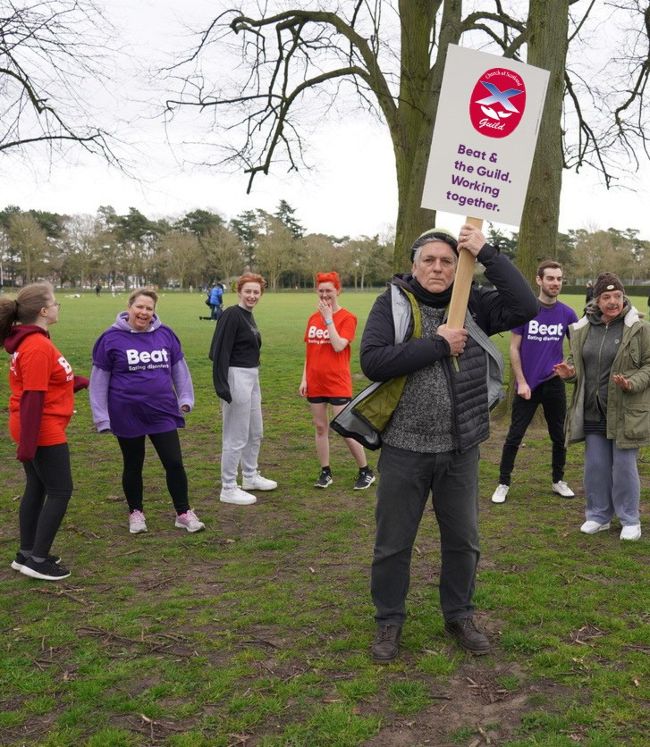
Beat and the Guild activities
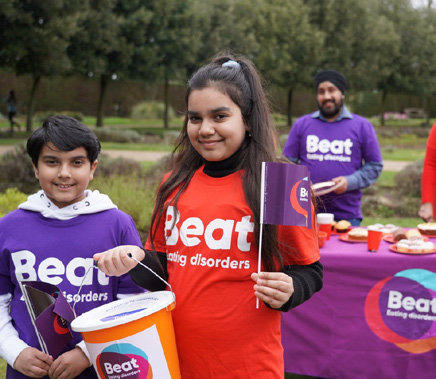
Beat and the Guild activities
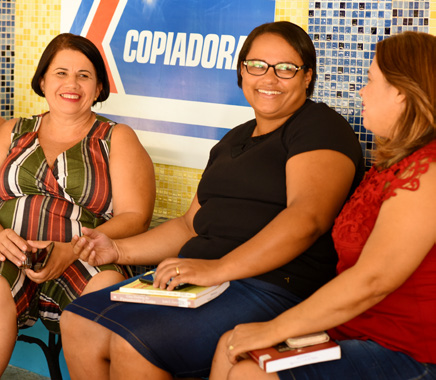
UNIDA
“With the help of the Guild, we hope to build a partnership of mutual sharing and exchange with the Guild. We want to broaden our students’ horizons and experience of the world church. We hope – Covid-19 permitting – that members of the Guild will be able to visit our students in Brazil. We want to continue to offer an education that transforms lives in a violent and violently unjust society.
“We hope this experience of the Guild in Scotland - an organisation whose membership is 95% female and was founded with the aim of using women’s God-given in-service gifts – can inspire our students. Partnerships with grassroots organisations like the Guild, present throughout Scotland, can offer practical examples of ministry and service to our students. Any money raised will enable women, normally excluded from higher education, to study and serve.”
Finding the Light in Every Child is a charity based at the Mango Tree Learning Centre in Jinja, Uganda. It aims to bring understanding, support and aid to those with Autistic Spectrum Disorder, additional support needs and physical disabilities in Uganda.
“In Uganda, the level of autism awareness is pathetically low,” says Michaela Foster Marsh, CEO of the project. “Efforts to increase public awareness and sensitivity towards autism from grassroots levels are urgently needed. Many of these children are often left chained up in the dark, sometimes for days. They are often the victims of rape and abuse. Since starting this project we have uncovered over 50 affected local families in one community alone.
“On evaluating how well received our Starchild School for Creative Arts was, it became apparent to us that those most marginalised and vulnerable, especially those with additional support needs and physical disabilities, were still unable to access any formal or informal training at our centre,” she says.
“Autistic children are feared and despised in their communities. Even their mothers are shunned and accused of bringing a ‘curse’ on the families.”
It was while working with Starchild that it became apparent to Michaela that a new resource was needed.
“Starchild is presently looking to get funding from the Guild to build and develop a holistic sanctuary of excellence that offers support, training and guidance to those most marginalised. The ultimate goal is to promote livelihood opportunities, understanding and increase family income, thus breaking the cycle of poverty, stigma and abuse. This would be a place where this marginalised group can work together in their struggle to bring about a muchneeded change in their culture. The Sunflower Sanctuary will be built in memory of my partner Rony Bridges who was a committed board member and co-founder of Starchild.
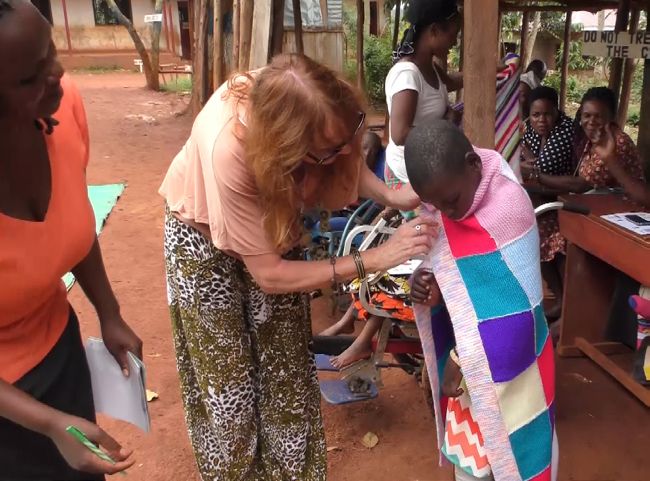
The Sunflower Sanctuary
Having the support of the Guild has literally been a God send. Without the Guild’s help I doubt we could be able to build this much needed Sanctuary and help this vulnerable group of people.
“The sanctuary will be a place where we can provide a secure environment where this marginalised group can continue to grow, develop skills, hold training workshops and create social enterprises which are self-sustaining. It would be a place where they can also find love, acceptance and hope. Such a centre in Uganda would be a first of its kind,” she explains.
“According to the new Christian Aid report: ‘The Covid-19 pandemic has exacerbated deep and often hidden inequalities across the world, and could tip into “catastrophe” unless there is a recovery plan that addresses these inequalities.’
“It is this lack of equality and inclusion that Starchild is addressing with this project. The Lord does not distinguish between first, second or third worlds; those are manmade and do not exist. With this funding Starchild and the Guild can reach beyond personal and national borders, in order that no one is left behind as we are all God’s children.
“The Guild has always been in my life.” Michaela smiles. “My father was a Church of Scotland minister the Rev William Marsh and my mother, Morag Marsh was a member of the Guild. I am a member of Netherlee Parish Church and have attended Guild events over the years and also been invited to talk about Starchild.
“The Guild has always been supportive of Starchild in our church. We are absolutely delighted that we can now cast our nets to all the Guilds across the country and work with them in faith and prayer going forward.
“Having the support of the Guild has literally been a God send. Without the Guild’s help I doubt we could be able to build this much needed Sanctuary and help this vulnerable group of people. With the pandemic and our inability to hold fundraisers for well over a year now and government cuts to international funding it has been a real struggle to keep going. This has given us a new lease of life and injected this vulnerable group of people with hope and faith in the future. This marginalised group in Uganda are so grateful to know that people here care about them and are offering much-needed assistance. Just knowing they are loved and respected has made a huge difference to their lives. You cannot underestimate what this funding will be able to do. It will literally transform lives.
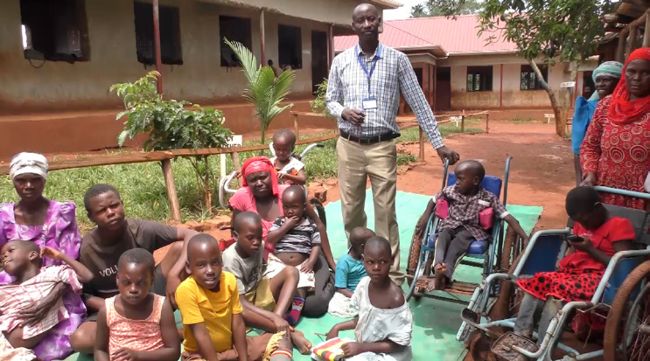
The Sunflower Sanctuary
“Over the three-year period the key aims will be to address the ongoing stigma of those living with autism and disabilities and successfully integrate those individuals and their caregivers giving access to specialised disability awareness training. We are also keen to raise public awareness within local communities.”
The direct effects can’t be underestimated either.
Michaela adds: “Parent(s)/Caregivers will have better relationships with their children and will have enhanced their own skills and understanding of teaching about disability within their local communities. This will give rise to better empowerment for them to have a positive effect on cultural and social change within their own communities. There will be a reduction in the use of physical punishment to those who are misunderstood due to their disability.
Fathers will have a clearer understanding that people with autism and disabilities are not cursed, or something to be afraid of.
“Christ’s light does not burn – it heals; it does not condemn – it frees; it does not close or shut down – it opens and liberates! With the Guild we can build a shelter, a sanctuary where others have fled in fear.
We can find the light in every child and shine Christ’s light into their lives.”